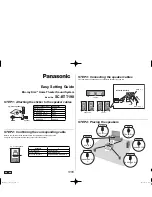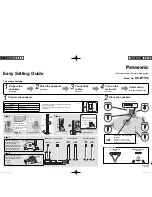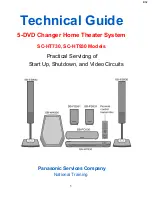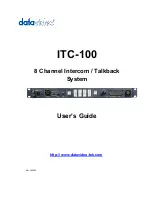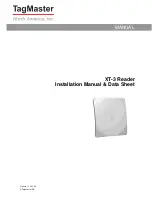
RQTX1146
RQTX1146
RQTX1146
RQTX1146
13
ENGLISH
Preparation:
Pair the Bluetooth device with this unit to create an audio connection.
Press [
q
/
h
] to select Bluetooth.
When using it for the first time, it enters pairing mode automatically.
While this unit is in pairing mode, access the Bluetooth menu of
the Bluetooth device and execute a Bluetooth search to find this
unit (SC-HC40).
Please refer to the Bluetooth device user manual for further
instruction on how to connect a Bluetooth device.
If prompted for the passkey, enter “0000” (For Bluetooth
devices which version are incompatible with 2.1+EDR).
If pairing is successful, the paired device’s name will be
displayed for 2 seconds. The Bluetooth indicator lights up. The
unit is now ready to be used with the Bluetooth device.
Make sure the Bluetooth device supports A2DP (Advance Audio
Distribution Profile).
This unit supports the A2DP reception which is copyright-protected by
SCMS-T method.
A2DP enables you to stream stereo sound from an audio source
(mobile phone, PC or laptop) to this unit via Bluetooth.
Depending on the specification or setting of mobile phones,
connection may not be established, or operation and display may
vary.
You can register up to 6 devices into this unit. Disconnect the current
Bluetooth device and refer to “To register more devices” (
➡
page 14).
If you register more than the maximum device number, the oldest
device in connection history will be overwritten.
If a registered device is re-registered, it will be overwritten.
•
•
•
•
•
•
•
•
•
•
External unit
(continued)
About using Bluetooth
g
Frequency band used
This unit uses the 2.4 GHz frequency band, however other devices may
use this frequency as well. To avoid interference with other wireless
devices, please follow the cautions listed below.
g
Certification of this device
This unit conforms to frequency restrictions and has received certification
based on frequency laws, so a wireless permit is not necessary.
However, the following actions are punishable by law:
Taking apart/modifying the unit.
Removing specification indications from the rear part of this unit.
g
Usage restrictions
Wireless transmission and/or usage with all Bluetooth equipped
devices is not guaranteed.
Compatible mobile phones capable of wireless transmission include
and comply to standards set by the Bluetooth SIG, Inc. However, if
the mobile phone is optimized to meet standard specifications, some
functions may work. Even so, depending on the specifications and
settings of the mobile phone, a connection may not be established,
nor are the methods of operation, display, or operation guaranteed.
This unit supports Bluetooth security features, however depending on
the operating environment and/or settings, this security may not be
sufficient. Use caution when transmitting data wirelessly.
Please be aware that Panasonic accepts no responsibility for data
and/or information that may be compromised during a wireless
transmission.
g
Range of use
Use this device within an unobstructed 10 m range. The range of usage
or perimeter may be shortened depending on any obstructions, devices
causing interference, other people in the room, or the construction of the
building. Please note that the range mentioned above is not guaranteed.
g
Effects from other devices
It is possible that this unit may not operate correctly or you may
experience other effects of instability such as “broken up” audio, etc.
when other devices are placed within close proximity. Therefore, in
order to prevent signal interference, we recommend separating this
unit from the following devices during use:
Microwave oven/Wireless LAN/Electronic devices/Audio & Video
devices/Office Assistant machines & devices/Digital cordless
phones/Fax machines, etc.
If you live in close proximity to a broadcasting studio and the signal is
too strong, the unit may not operate correctly.
When using a notebook PC with a wireless LAN transmitter, do not
use this unit and the wireless LAN at the same time.
If you are still experiencing noise even outside of the 5 m range of a
wireless LAN device, turn the power to the wireless LAN device off.
g
Intended usage limitations
This unit is intended for normal, general use. This unit is not developed
or manufactured with the intention of use in “high safety”
or hazardous
occupations. Do not use this unit in these kinds of environments or
occupations.
The following examples require extreme caution, and can directly
result in loss of life, or extreme bodily harm.
e.g.) Nuclear Engineering, and control of a nuclear reaction/automated
control of aircraft/air traffic control management/controling
movement of heavy freight systems/control of life support or
extension systems/control of weapons systems and/or missile
launch systems, etc.
•
•
•
•
•
•
•
•
•
•
What is Bluetooth?
Bluetooth technology allows you to make a wireless connection with
another electronic device.
Bluetooth operations
Basic play
Press [
q
/
h
] to select Bluetooth.
On the Bluetooth device, start playback of a music source. If the
device is connected, the music will be heard on this unit.
(Please refer to the Bluetooth device user manual if required.)
You can also make the following controls with the remote
control.
Play
Press
[
q
/
h
]
to start play.
Stop
Press
[
g
, ]
.
Pause
Press
[
q
/
h
]
. Press again to resume play.
Skip track
Press
[
u
]
or
[
i
]
.
To utilise these functions, the Bluetooth device must support AVRCP
(Audio Video Remote Control Profile).
This unit cannot transmit data to a Bluetooth device.
When playing iPod
®
/iPhone by Bluetooth with the main unit,
intermittent sound may be experienced if you leave the iPod
®
/iPhone
Bluetooth menu screen active or when making Bluetooth registration
and connection. If this occurs, please exit the iPod
®
/iPhone Bluetooth
menu screen.
When playing music by iPod
®
/iPhone via Bluetooth connection and the
iPod
®
/iPhone is connected into this unit iPod
®
/iPhone dock, the audio
will not be re-produced in Bluetooth selector. Switch the selector to
iPod
®
to continue enjoying the music.
•
•
•
•
13






























